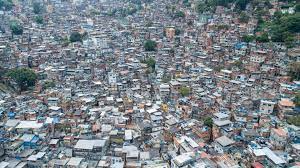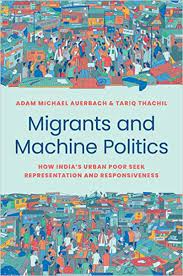Book by political scientists Adam Auerbach and Tariq Thachil, Migrants and Machine Politics, tells us that much of what we think we know is myth, not fact.
In most depictions of Indian slums, they are always shown as these dens of inequality and deprivation, where people are trapped in a whirlpool of desperate needs, utter poverty, poor leadership, and corruption. Politicians and their goons seem to have the last laugh, squeezing out the last of what these people have with no exit option.

Image source: UNDP
A new book by political scientists, Adam Auerbach and Tariq Thachil, Migrants and Machine Politics, talks about how the majority of what we know is based on myths, and very little on facts.

Image source: Amazon
In their book, Auerbach and Thachil tell us about their findings based on a decade of fieldwork with urban squatters in Bhopal and Jaipur.
According to their findings, these slums, which people believe are lawless and chaotic, are actually highly active, organized, and heavily competitive, said Thachil, who is the director of the Center for Advanced Studies in India (CIAS).
Ordinary residents not only vote at high rates, but between votes, they regularly organize to make claims, try to secure goods or services for their settlements, or fight off eviction efforts.
Thachil said that the leaders who organize these communities in urban slum settlements come mostly from the same background. These leaders are connected to mainstream politics and are responsible for deciding how to respond to the demands of ordinary citizens. Instead of just being mere pawns in a rigid political game, these citizens are actively using the forces of political competition.
According to Auerbach, the reality of “machine politics’ is quite contrary. There are two processes by which an informal leader can emerge in this field. One is through informal elections in the community, and the other is through reflective community meetings where people in the community come together and decide who they want to be their informal leader.
There are also everyday moments when residents have to decide who to turn to for help in needed times. If there is a water shortage or electricity cuts, or when the monsoon rains wash away the roads, who can they rely on for improvement in these factors? These decisions sum up into a distribution of support for an informal leader.
One of their most counterintuitive findings is the role played by identity politics. These settlements are extremely diverse and leaders cannot depend on caste and religion to target residents for a vote. The authors say that if you pick two people from a settlement, there is an 80% chance of them being from different castes.













